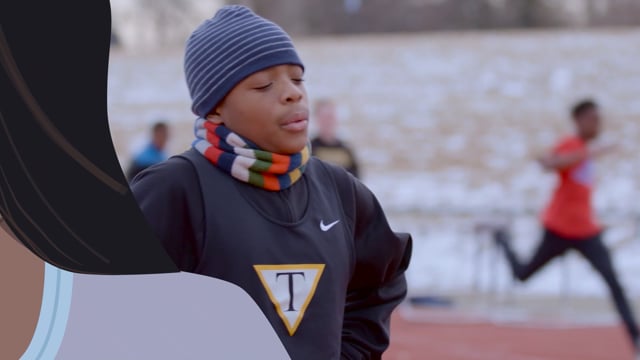Asthma Flare-Ups
What Are Asthma Flare-Ups?
An asthma flare-up is when asthma symptoms get worse, making kids wheeze, cough, or be short of breath. An asthma flare-up can happen even when someone's asthma is well-controlled.
Asthma flare-ups are also called asthma attacks or exacerbations.
What Happens in an Asthma Flare-Up?
Asthma is a disease of the airways that deliver air in and out of the lungs. When someone has asthma, these airways are always slightly inflamed (irritated and swollen), even when the person seems to be breathing fine.
During a flare-up, the inflammation gets worse. Then:
- The airway walls get more swollen.
- Sticky mucus clogs the airways.
- The muscles around the airways get tight (this is called bronchoconstriction).
These problems narrow the airways and leave very little room in the airways for air to flow through.
-

Asthma
Learn more about asthma.
What Causes Asthma Flare-Ups?
People with asthma have airways that are quick to react to some things (called triggers). When a person with asthma reacts to a trigger, their airways swell more, make more mucus, and tighten up. This can bring on asthma symptoms.
Triggers vary from person to person, but common ones include:
- viral respiratory infections, like the common cold or flu
- allergies to things like pollen, mold, and pet dander
- irritants and pollutants in the air, like cigarette smoke or smog
- weather conditions, like cold and dry air or hot and humid air
- strong emotions, like laughing, crying, or feeling stressed
- exercise
If not treated, a flare-up can last for several hours or even days. Asthma medicines often can stop the symptoms pretty quickly. A person should feel better once the flare-up ends, although this can take several days, especially if a viral infection was the trigger.
What Are the Signs & Symptoms of an Asthma Flare-Up?
Asthma flare-ups can vary in strength and length. They can sometimes happen without warning, causing sudden coughing, shortness of breath, and wheezing.
But usually there are some early warning signs that can help a person figure out that a flare-up is on the way. These signs might differ from person to person, and even from flare-up to flare-up in the same person. Using an asthma diary can help keep track of these early symptoms. This way flare-ups can be caught early on and treated quickly.
Early warning signs can include:
- mild coughing
- throat clearing
- fast or irregular breathing
- feeling very tired
- trouble doing everyday activities
- restless sleep
- stomachache or headache
- mood changes
During a flare-up, symptoms include:
- worsening cough, especially at night or while active
- trouble breathing
- a tight chest
- a whistling sound while breathing out (wheezing)
Because they can be life-threatening, flare-ups demand attention. Your child might need to take an asthma medicine that acts quickly to relieve symptoms, visit the doctor, or even go to the hospital.
Following the instructions in your child's asthma action plan can help you know what to do when a flare-up happens.
How Can Parents Help?
To help prevent flare-ups:
- Work with the doctor on an effective asthma action plan.
- Teach your child how to avoid asthma triggers.
- If your child is supposed to take a medicine every day, they should keep taking it, even if they feel fine and don’t have any symptoms.
- If your child starts to feel asthma symptoms, they should take the medicine prescribed for quick relief of symptoms. If they already take a daily medicine, the “quick-relief” medicine might be extra doses of the daily medicine, or it might be a different type.
- If your child uses an inhaler, they should always use a spacer with it.
- Make sure your child always has medicine available for quick relief of symptoms (at home, at school, etc.).
- Make sure your child got a COVID-19 vaccine and the yearly flu vaccine.
- Teach kids to wash hands well and often to avoid germs that lead to colds and other illnesses.
